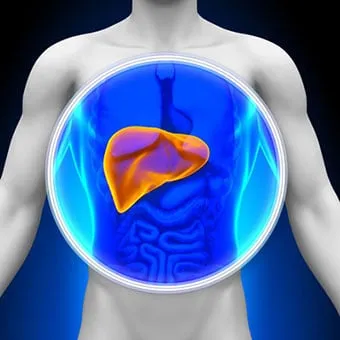The liver is the body’s largest internal organ, weighing nearly 1.5 kg and performing over 200 tasks. The majority of individuals are unaware of how important it is to their overall health. The liver performs many important tasks, including:
- Blood purification
- Produces bile to control the metabolism
- Detoxifies
- Provides defence against parasites
- Stores glycogen and changes it into energy, stores fat-soluble vitamins and minerals, and synthesis protein
- Produces cholesterol which is essential since it is the source of our steroid hormones. It governs our nerve function, brain function, and hormone transportation.
Liver health is vital for the proper functioning of our bodies. Dr. Gaurav Gupta, a liver transplant surgeon in Mumbai, recommends a healthy lifestyle and being aware of any early signs of a liver problem that can be tackled in the initial stage.
How do toxins enter our bodies?
Here are a few things that could add to our toxic load:
|
|
The kidneys, lungs, skin, digestive tract, and liver are all detoxifying organs and can remove harmful toxins from our bodies. The difficulty arises when the load exceeds its capacity. It is when we start to feel the effects of toxicity.
Sometimes they cause irreparable damage to the liver leading to liver failure. The best solution for this is a liver transplant in Mumbai. For details, visit a liver specialist.
What are the first symptoms of liver disease?
Here are some of the most prevalent signs and symptoms of poor liver function and detoxification:
Hormonal Imbalance
- Acute menopausal symptoms
- Intolerance to hormone replacement therapy
- Overproduction of estrogen
- PMS
- Mood swings
Immune dysfunction
- Chronic tiredness
- Skin rashes and allergies
- Sensitivity to chemicals
- Frequent sickness
Blood sugar problems
- Type2 diabetes
- Sugar cravings
- Low energy
- Hypoglycemia
- Getting up in the middle of the night
Digestive issues
- Caffeine and alcohol sensitivity
- Fat intolerance
- Constipation and bloating
- Acid reflux
- Irritable bowel syndrome
- Gallbladder stones
Nervous system
- Frequent headaches
- Depression
- Foggy brain
- Irritability and anger
Abnormal fat metabolism
- High levels of bad cholesterol (LDL) and low levels of good cholesterol (HDL).
- Obesity
- Fatty liver
- High levels of triglycerides
Cirrhosis which is permanent scarring of the liver, and the rise in liver disease are topics that we regularly hear about. With the correct blood work and tests for indicators, we can detect liver disease. The problem is that by the time these tests are suggested, a lot of liver damage has already occurred.
How frequently do you hear about the common symptoms of liver fatigue, which a toxic or stressful lifestyle can cause? Well, we can rejuvenate the liver by cleansing the body, providing it with the correct dietary supplies, and avoiding harmful environmental pollutants.
You can restore the functions of your liver to total health. Foods and herbs that help liver regeneration and detoxification can be utilized to significantly improve the symptoms of a slowdown liver and provide long-term healing benefits.
It is essential to be aware in order to prevent damage before it occurs. It is highly recommended to seek medical help if you suffer from any of the above symptoms.
Fortunately, there are treatments and procedures available to manage this issue. In case of liver failure, you can contact Dr. Gaurav Gupta for one of the best liver transplant in Mumbai.





